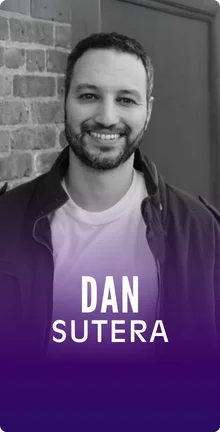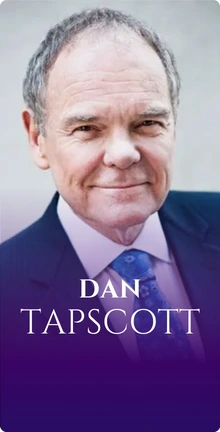In this Episode
- [02:37]David Leiter shares his investment strategies and insights after two decades of experience in finance and real estate.
- [10:03]David emphasizes the importance of understanding the risk ladder in investing, particularly in high-inflation environments.
- [13:57]David talks about investing in cryptocurrencies like Bitcoin, noting that they’re not productive and their value is solely based on sentiment.
- [18:17]David cites the potential for control and cash flow of real estate investing while also acknowledging its risk.
- [23:08]David discusses real estate investing with Warren Buffet’s principles of finding durable competitive advantages.
- [29:26]David highlights the advantage of buying real estate without a buyer’s agent, analyzing the property’s replacement cost and comparing it to the asking price to determine whether it is reasonable.
- [33:48]David introduces the five levels of the investor framework.
- [44:28]David explains the concept of free cash flow yield, which is the value of a company’s free cash flow relative to its market capitalization.
- [52:38]David invites you to visit holygrailinvesting.com for more information and to stay in touch.
David, thanks for coming.
Thank you. It’s great to be here, Stephan.
First of all, I’d love for you to give us the backstory of why you’re training people on how not to get snookered because there are some sharks out there, especially in some masterminds where you think they’re highly vetted. Everybody’s super legit and has impeccable values, and then you end up losing a lot of money investing in their schemes. Why is it that this is something that you’re passionate about? What’s the backstory behind that?
I had been investing. I started on Wall Street in the mid-90s, during the dot-com bubble. I was trained there in credit analysis and all this stuff, so I had some expertise. Over the years, I was in certain groups where there were great groups of people, as you noted.
During probably the last 12 years, when interest rates were zero, everything went up, and many people entered the investment management business. Some of them really didn’t know what they were doing. A rising tide lifts all boats. They thought they were really smart, and they were taking other people’s money and investing it in startup-type deals or all sorts of different schemes.
I saw people lose money investing with each other over and over again. The reason was that these people were saying they were good people, maybe with good intentions, but they really didn’t know what they were doing. They were taking people’s money. Everything was going up after the great financial crisis. For 12 years, interest rates were basically zero, which had a huge effect on all asset prices.
People got into the investment business, and things went up. They thought they were geniuses. They took other people’s money. They were good people, maybe with good intentions, but they had no perspective of cycles. They lost people’s money. Many of my friends, people I knew, people who didn’t have much money, even though some had a lot, lost. I’m not worried about them, but many people didn’t really have a lot who were losing.
Think of investments as a risk ladder where all investments represent steps to a risk-free return. Share on XThe other thing was some people got involved with bad intentions. They were raising money, and they were just not legitimate deals. There was a small handful of those. When I sold my management company at the end of 2020, I had much more free time. I was basically retired. I was living off my investments. The sale of my management company was relatively small relative to my other activities, but I was just very happy. I don’t know, and I just sold again; I had more time.
I just wrote 20 Rules to Know to Stop Making Dumb Investments. I wrote it for my friends. It was a cheeky title and part humor, but it was a lot of truth. It was all true. It was just like, “Hey guys, wake up. This is ridiculous.”
I was disgusted again. It came to a head with the crypto crowd because, in the crypto crowd, there were all sorts of wild schemes going on. I said it early on about staking schemes, where they tell you you’ll get 10%-20% a month in interest or all sorts of wild claims, and it all imploded.
I felt like I had a lot of expertise in this area. I’ve been investing since the mid-nineties and haven’t gone broke from it. I was from the Warren Buffett school and learned how to value investments and make rational long-term decisions. And I did very well with it. I thought I could help, so I started talking about it.
The stuff you shared on WhatsApp—we’re in some WhatsApp groups together—is really important wisdom for anybody wanting to invest. Especially when you think you’re investing in vetted programs because you’re in a vetted community, you lose, and it’s just a painful wake-up call.
I learned how to value investments and make rational long-term decisions. I thought I could help others, so I started talking about it.
One that I had many years ago was when I first entered the Tony Robbins world, Platinum Partnership, where I made some bad investments that I thought were good. I lost multiple hundreds of thousands of dollars. That lesson was very painful, but it doesn’t take many of those, and you smarten up. So it’s much better to learn from somebody else’s mistakes than your own in terms of your own balance sheet. It’s good that you’re doing this.
Let me be clear, I love Tony. The community is awesome, Platinum. I have a lot of my great friends in it. You mentioned it. That was one area, but the issue was they couldn’t be sure about every person, watch every person, and see what they were doing. I don’t blame the community; it was just some people or Tony.
Tony’s incredible. I learned a massive amount from him, but a few people in the group were trying to raise money from others, and it spiraled in certain cases. 99% of that group are awesome people and great friends.
It was just this small percentage that was representative of what was going out there in the world. If you turn on YouTube every day, somebody is telling you absolutely the best thing, and you’ll make a lot of money. Some people make wild claims like, “Hey, let’s all smarten up.” Certain things are just really low probability.
In every investment, I always say no investment pro owner has ever said, “Invest with me, and you’re going to lose your money.” No one ever says it. Every deal sounds great. Everything that has ever been pitched sounds great.
There are very shrewd and smart people who can make things look any way you want. I have some real estate deals that were promoted. I showed them the spreadsheet by popular guys who are out there. I showed how you could change the numbers just a little bit when you plotted it out. The whole deal looks awful. It’s all based on the assumptions that you’re making.
You don’t need to be a math whiz, but I have a real estate program where I was showing people that. I can make projections look like anything I want. I also saw that at Credit Suisse. Everybody operates with integrity, but there’s a certain amount of range and assumptions that you can make, that you can tell people, “Hey, if you do this, you’re going to make this return.”
If you want to get smart about these things, if people want to get smart, you have to first realize that’s how the investment industry is, in large part. Just because you see BlackRock promoting a crypto ETF or something, they want to make money. The fees are enormous.
You cannot just assume, “Oh, then that means it’s okay,” or Kevin O’Leary is on TV saying, “Buy bitcoin.” Now he’s saying “No,” which is very funny. He hated Bitcoin. He got $15 million from FTX, and he loved Bitcoin. That’s an amazing transformation. $15 million changed his mind. Now he says he doesn’t like it because that imploded.
It’s hard out there. You have to be smart. I worked in real estate and finance in New York City for 30 years. If you’re not smart and shrewd, you get crushed. It’s a tough market. I wanted to share that with people.
What are some of the principles that you would share in a community like Platinum Partnership or your own private mastermind? What are some of the key principles above and beyond what you would read explaining value investing, Warren Buffett’s approach, and investing in wonderful companies? Do they have a moat or something? Give us some immediately practical advice you don’t typically hear in the traditional media.
One key thing when you’re investing is thinking in terms of what’s called a risk ladder. All investments compete with what is considered a risk-free return: US treasuries. Interest rates are like gravity. Asset prices tend to fall when interest rates are up because all investments compete. Remember that professional money always seeks the best return for the least risk.
Some people take relatively more risks to go for those bigger returns. But if you think about the risk ladder, treasuries are at the bottom. Right now, you can get 5%, give or take, in short-term treasury bills for three or six months.
As you invest more, you take on more risk. You need to set a reasonable expectation that you’ll be rewarded for that additional risk.
Those aren’t great investments in the long term because, as we know, inflation and all these things deteriorate your money. In a high-inflation environment, you don’t necessarily want to own bonds. But if I can start at 5%, now, if I go up the risk ladder, you have different types of bonds that are considered slightly riskier: corporate bonds, even municipal bonds, corporate bonds, and higher bonds. As you go up the risk ladder, you need to get compensated accordingly.
After that, you might have stocks, real estate you own, private equity you invest with others, venture capital, and angel investing. As you go up, you’re taking more risk. You need to have a reasonable expectation that you’ll be rewarded for that additional risk.
For instance, let’s say somebody comes to you with a real estate deal and says, “Stephan, you’re going to make an IRR, an internal rate of return of 10%, invest in my real estate deal.” You have to make a judgment and say, “You know what, I can own a portfolio of bonds and get almost around that same, maybe 6%, 7%, 11%, or 12% on high yield, more risky bonds. I can control it. I can sell them at any time. If I invest in this person’s deal, it’s illiquid.” Maybe he makes wrong decisions. You have to think about the risk relative to the return.
When stocks are at high valuations, the return may be less. Think about this. You can own the best companies in the world, and through public markets, you can control them in your own account. You can own through an index if you don’t know how to evaluate stocks. If you’re in an index, you always own the best companies in the world. Some fall off, and some go up. Historically, that’s been a good return through periods. It depends on when you need the money because markets can go down or sideways for long periods.
The point is that when you invest in your brother-in-law’s crypto scheme and think, “Oh, I’m going to make 10,000% or lose everything,” the probability of the 10,000% is 1% or less, and the probability of losing it all is very high. You have to be able to make these judgments. Most people cannot make these judgments.
I’m just trying to say to people, “Be rational about it.” I’m not saying take no risk, but you need to be rewarded. Most professionals take the risks they take. Unless that’s their game plan and they’re good at it, like venture capital, you have professional venture capitalists who will lose money on maybe seven out of ten deals. But they know that, and they get the one that is a huge success, and maybe a couple of them break even, or they do, “Okay, but that’s their business.”
To make judgments that they make, they have been doing it for decades. These people are the best in the world and still lose a lot of time. As a regular person off the street, you’re going to make this decision about some startup. You have to realize the difficulty of that. That’s the idea. There’s one thing you ask for to think in terms of risk and what risk you’re taking because most people don’t assess that risk correctly.
Even just investing in Bitcoin or Ethereum, where does that sit on the risk ladder?
I’ll give you another piece just to think about it, and then I’ll explain that. When you think about investing, there are two types of investments. There’s the investment where you look to the asset to produce the return. The asset produces a return. What does that mean?
I have real estate. I invest in it, and I get cash flow from it. It produces a return. Whether you’re interested in buying my real estate is irrelevant to me. I don’t have to sell it. The asset produces a return to me every week, month, and year. That is also about a business that you buy.
If you think about the stock market, don’t think about it as this gambling casino where things go up and down, and you’re trying to gain those prices. When you think about stocks, you should think, “I own a piece of the business.” Those are called productive assets, real estate, farmland, and a great business, either through the stock market or privately. “I look to the asset to produce the return. I don’t have to sell it to someone else to get a return.”
The other type of investment is you’ll solely make a return if someone else buys it at a higher price. That’s how you get your return. That is crypto. The asset itself produces nothing. Bitcoin does nothing and produces nothing. There’s no intrinsic value, as they call it. It’s just a sentiment play that others believe; it’ll go up, and others will always want to buy it at a higher price. That’s the only reason you buy it.
The bitcoin does nothing. It’s unproductive. When you say where Bitcoin falls on that, to me, if you stay with productive assets, that’s what Warren Buffett does as well. Most of the great investors are productive assets. They don’t speculate in sentiment plays or Bitcoin. It’s like a gambling token.
Inflation deteriorates your money.
Do you want to do it? Fine, do it, but realize what it is. It’s not productive. The only reason people buy it is if you asked a million people, yes, a hundred people, 99% percent of them would say, “I own it.” Many of them own it because it’s unbearable to see it go up; they don’t own any, and their friend gets rich. It’s literally unbearable emotionally. It’s like, “I own it just in case it goes up.” That’s not investing.
The other thing is that Bitcoin and Ethereum are around, but 99.9% of these coins went to zero. It’s like you’re buying an asset class, all the small ones. It’s like going to a restaurant, and everything on the menu, everyone dies every time they go. The meal kills everyone. You say no, but you don’t understand their stuff. “This one dish on the menu hasn’t killed anybody, so I’m going to eat that.”
To me, it’s a speculation. I have this thing called five levels of investor. Level one, you speculate on price movements. It’s very emotional, and this is not professional investing. I’m just saying to people to be more aware of these differences. Because it’s on the media all day, on CNBC, and on Bloomberg, you think, “Oh, that’s good. The government approved it.”
The SEC says you can have a Bitcoin ETF, which must be good. The government has approved cigarettes and asbestos. They used to have cocaine and Coca-Cola. I just want people to think a little bit deeper about what they’re doing.
That’s really important. Where does real estate sit on the risk ladder? You can have lots of different kinds of real estate investments. You could be completely on your own. You could buy into some joint scheme or wherever you get a piece, and you’re just passively sitting on the sidelines while somebody else is doing the rehabs, the property management, etc. You could do single family, and you can do multifamily, you can do commercial properties that need to—it’s an environmental disaster, and you have to reclaim the land and stuff. There are all kinds of real estate investments.
If you own real estate and know what you’re doing, it can be less risky. It obviously has some risk, but I love real estate because you can control a lot of it if you buy it correctly. I just did a real estate event. I started with real estate. I teach investing in all assets—how to analyze them and real estate. I bought my first property in 1998. I love real estate.
Real estate ownership doesn’t have to involve huge risk . Master the purchase process and you can control many risk variables. Share on XIt depends on if you’ll give money to somebody else and their investment manager. What’s their timeline and history? I would always look for people with at least 20-25 years of experience because, again, the bottom of the market is in the last 12 years. They had a great financial crisis in 2008—people who didn’t know what they were doing got really hurt in real estate.
I didn’t have any problems. I could have slept through it because I had productive assets and cash flow. I wasn’t speculating on price gains, which people do in real estate. They just say, “I’m going to buy and sell it to someone else at a higher price.” That’s how people got wiped out in 2008 because they were buying these houses and condos and thought, “I’ll just sell somebody a higher price,” but they couldn’t rent them out to cover their expenses. When the market turned, they lost their money.
At that time, though, if you bought real estate in 2010, 2011, 2012, 2013, or 2014, you could have bought anything, and it went up. Interest rates were very low. Interest rates have a huge effect on the value of assets. You have to keep in perspective that that’s not normal. That wasn’t normal. Now, we have a higher interest rate environment. That’s more normal, historically. Higher rates would even be considered normal. That affects the borrowing capability.
Again, as a risk, if you have reasonable debt in this environment, you made good assumptions about the real estate you were buying, the income it would produce, and the expenses. It’s all about those assumptions you make upfront. I always say investing is part art, part science. The science is today.
If you go to a property and say, “All right, it’s a 32-unit property, you get an average of a thousand dollars monthly rent in each unit.” That’s the science. You know that’s a fact. You have to do your due diligence and ensure that’s correct, but that’s what they tell you.

The art of it is like, “What’s the competitive advantage this building has? Will it go up in value? Why will it go up?” It relatively will go up if the rents can go up. Depending on where the risk-free interest rates are, again, the risk ladder, the value of the real estate will go up or down, and you’ll get an expansion of what they call multiples.
How much will you pay for that income? If interest rates are zero, people pay much more for an asset producing something. If interest rates are 5%, they’re now competing with a 5% risk-free return, so the value of properties comes down, as we’ve seen. Making these judgments about risk is the whole game.
Now, if you invest with somebody else, you said, “Well, I could do like a syndication. This is a great way to buy properties.” But what happened was you had a lot of syndicators. I always look at the managers’ histories. Again, they made money when it was easy, and then they looked really good. They made money in 2011, 2012, 2013, 2014, and up till 2022.
Many of those guys are getting wiped out because they made bad assumptions. They assumed interest rates would be zero forever, and that’s a bad assumption. So they’re underwriting. They made assumptions about rents. But I will tell you this. The reason I did it is there’s so much money in raising money. Warren Buffett said at the annual meeting of Berkshire Hathaway Inc., where I was, that the money has been in raising money, not our performance.
There’s so much money made by raising money. I teach people to look at these presentations. “How much are the general partners making? Do they get paid because they made you money, or do they just get paid by raising it?” They’re getting all sorts of management fees for doing nothing.
Interest rates have a huge effect on the value of assets.
You have to assess this risk and ensure alignment if you’re investing with somebody else. It’s great that the general partner makes money if you do. That’s fair. I want them to make money, but for them to make money just for raising the money from day one, I don’t want to be in that deal. Then, you have to assess their experience level. Have they been through cycles, or was it just in the last 12 years? That’s just a couple of things to think about.
I love real estate overall. It’s a productive asset. If you’re smart, you can protect your downside. Use long-term fixed-rate debt as long as you can. Don’t speculate on interest rate changes. Some say, “Oh well, interest rates are definitely going down.” I don’t know about that. There’s a lot of history. We could get into that, but you look at history to see how these things happened in the past.
Really good stuff. You mentioned a competitive advantage when talking about real estate, which makes a really good point. My understanding of Warren Buffett’s style of investing is that if you’re looking for moats, durable competitive advantages such as a brand moat, such as a toll booth moat, etc., you can apply his principles to real estate investing. I don’t know that people do that enough. Maybe you could give us an example where it’s a little outside the box to think about applying Warren Buffett’s style of investing to a real estate investment.
It’s a great point. At the event, I spent the first hour or so reviewing Berkshire Buffett’s principles. I did it because he compounded returns for 57 years at over 19% a year. These are people who made money 30% a year for 20 years. That’s incredible. I’m not knocking that, but there’s something to be said over 57 years of compounding it over 19%. Let me tell you, you will be plenty rich if you could do that.
His principles work through many cycles. What’s an example of that? Durable competitive advantage and sustainable competitive advantage. There’s another way to say it. It means, “Are you going to get income from these properties through different cycles?”
When you look at it, let’s say it’s been really popular to invest in Dallas or Texas, and I understand why, and I’m not knocking it. People have made money, but there’s also tons of land. There’s tons of land. Dallas, they said, had the most empty lots. When returns are good, what happens? People start building new properties. I’ll show you a counterexample of that in a minute.
You have to assess risk and ensure alignment if you’re investing with somebody else.
In Texas, rents are going down. There’s a lot of new supply. All the assumptions made, it wasn’t maybe a durable, sustainable competitive advantage. I talk about four strategies for investing. Number one is buying in the best areas at a reasonable price. Warren Buffett said, “I would rather own a wonderful company.” Just replace the company with the property. That’s it.
Anything Warren Buffett says because the property is a business. He’s buying whole businesses, but a property is a business. It’s a simple business to understand. You know your rent and expenses, and that’s it. It’s a simple business to understand. That’s easy to do, so just replace it.
He said, “I would rather own a wonderful business at a fair price than a fair business or property at a wonderful price.” In New York City, it’s very hard to build and undercut my rent. First of all, there’s not a lot of land. You all know that if you assume you’re in Manhattan or Brooklyn, where I’m at. You have to buy a property, and you have to build. You’ll build at a much higher cost than my property. I have older buildings.
You cannot compete with me. I have a durable competitive advantage. You cannot charge lower rents than me. There’s a limited supply, it’s hard to build, and it’s expensive. Through different cycles, as long as you don’t have too much debt and you don’t have bad debt that’s coming due, you can sustain through multiple cycles, compound, and build real wealth. That’s the idea of Buffett’s sustainable, durable competitive advantage applied to real estate.
In an area where you can build a lot, you don’t know that that’s true. If you have land and land and land for miles, and you’re buying a property, and you’re saying, “Oh, my rents are good now, but what if they build all around you? And what costs are they in at?” That is something people don’t take into account when they’re thinking about real estate, but it’s really true.
I was really impressed by how you explained in one of your training how you could buy a nice property undervalued because of how they calculated the square footage and the price per square foot. Do you want to share a little bit of detail on that?
Speculating on price movements is emotional, and doesn’t lend to professional investing.
I lived in New York City my whole life. I came down here in April 2020 when the pandemic started for various reasons, one being quality of life and the other being my way of selling my business, and they put the deal on hold. I said, “You know what, let me go to Florida. I’ll close when I’m in Florida.” I’ve always wanted to live here.
I came down and was looking to recreate what I did in New York City, buying in areas that were transitioning. It went up a lot, and rents went up a lot, and that worked really well. But down here, I also started to notice that what you were referring to is the single-family housing market here; there’s very bad housing stock. There are not as many choices for people.
If you’re from the New York area, you can go to many suburbs to buy a nice house. The way to buy single-family houses is to look at the comparative price per square foot, let’s say, for a five-year history, which is what I do now. The brokers will tell you that’s crazy. You cannot get five years of history.
Let me tell you what it sold for six months ago. That helps them, but it doesn’t help you. If prices are very high, they went up in the pandemic, they went down, and then they went up like crazy, as we all know. If you bought at just looking at a short history, you would know.
Down here, and I did another deal like this, but the house I’m in now. Actually, I’ll talk about the one I bought in the Coconut Grove area. The five-year history was $500 roughly a square foot in that area for single-family homes. If you go waterfront or something extraordinary, the price per square foot goes out the window. You can’t use it because it goes wild at that point. You could have wide ranges in prices. You have to make sure you’re comparing.
It was 500 square feet. I was able to buy it. I looked at the five-year history. I was able to buy it at $480 a square foot, so I felt like I was under the five-year history, and then I made some improvements to it. Also, the prices went up a lot in Coconut Grove. I sold that house immediately for a much higher price.
I would rather own a wonderful business at a fair price than a fair business or property at a wonderful price. -Warren Buffett
I look at the price per square foot. I look at replacement costs. Obviously, if you see things sitting on the market for a while, that might be an advantage. When I buy houses, I don’t go with a broker. I sell with a broker, but I don’t go with a broker because I like the competitive advantage that the broker I’m buying from will make more money. The seller will make more money because I have no broker with me. There’s all sorts of things.
Price per square foot. State that again because it’s a really important point. Using a real estate broker to buy a property versus coming in without a broker makes a huge difference.
It does give you an advantage. I had several deals, and I liked that. I went into commercial properties, even there maybe, but specifically in single-family homes. I’m thinking of two cases in Florida where I bought a single-family home and went myself.
When I got there, there were other offers, but the broker wanted to do the deal with me so I could even get less of a price, and the broker made more money because he didn’t have to pay 3% to my broker. I don’t have one, so the broker split the commission. It’s just one thing you could do. Look at the history; look at replacement cost.
Right. You’re actually better off not to use a buyer’s agent when you’re looking to buy a single-family real estate.
If you have time to look and learn the market, I would say become an expert. I enjoyed it. If you have no time to look, you go on your own, and you’re not going to do any research, you might be better off having a broker. But again, I can get an advantage going in and bidding on a property without the broker in many cases. It might not work all the time, but a lot of times, they’ll want to do the deal with you.
They make twice the money.
Yeah, they make twice the money. Sometimes, they have a deal with the seller. They get a little less if it’s a direct deal, but they still make more money. That’s a small thing, but price per square foot is really important as a metric in single-family houses.

The value is calculated in a way that it’s undervalued, and you can go in and get a great deal. How does that happen?
For instance, I bought the house I’m in now from a major-league baseball player. He put half a million dollars into video and audio systems in this house. There are cameras in the corner of the property. It’s a couple of acres. They follow you around if you’re walking, but this is nowhere mentioned in the ad. Sometimes, you see things marketed very badly.
I went in here and thought, “Well, there are two buildings on a lot.” There’s the main building. There’s a guest house building with a batting cage attached to it, where I actually did the event I was telling you about. Obviously, all the equipment was removed in the batting cage, but it’s a really cool building.
That’s about 7000 square feet, but they only legally give you the square foot. The batting cage is not a living space. They’re giving you 5200 square feet. I’m looking at that, and I’m also looking at replacement costs. My lot is landscaped very nicely.
First of all, if you had to buy this lot, it would cost you maybe a million and a half dollars if you could find it in this area. The area is desirable. I started thinking, “Well if I could get the lot and build my own house, if I want to build 7000 square feet, what is that?” In Florida, maybe it’s 300-400 a square foot. Let’s say it’s 350 square feet, and I’ll build 7000 square feet. Or 300 square feet, that’s 2.1 million plus the lot. It’s 1.5, now I’m at 3.6. Again, this is not an exact science, but it helps to think about your replacement costs.
When stocks are at high valuations, your returns may decrease.
Now, I got to put it in the landscaping because that’s a lot of money. Maintaining the landscaping is a lot, but to put it in, you’re talking several hundred thousand dollars. Now, I want to put in the video and audio systems that he put in. Right away, we’re almost at $5 million. I bought the house for less than that, so I feel good about that. I feel pretty good about fixing some things here, and it’s worth more.
Everything I do is looking at value like real value, valuing assets. Single-family is different than commercial real estate, obviously, but that’s one. Those are a couple of ways to value single-family homes and make a good purchase.
That’s great. Please tell us more about your five levels of investing framework.
The five levels of the investor were something that I came up with recently. I woke up in the middle of the night after a mind-numbing conversation on the WhatsApp group. I think you’re in there. We have this public WhatsApp group with the crypto folks. I just couldn’t take it.
I just had this idea that there are five levels of investors. You may go through different levels. Hopefully, you can reach at least level three, and I’ll explain. Hopefully, everything I’m doing will get, if you listen to what I’m saying, if people listen and they get to a level three, which is awakened level, you’ll realize, “Hey, there’s more to this than I thought.”
Level one is basically the speculator or the gambler. Speculation is a nice way to say that you’re gambling; some people are very good at speculating. There are traders on Wall Street. I worked with them. They’re very few and far between.
It’s like an Olympic sport; it’s very hard to do. Whereas investing, what Buffett does, you can do reasonably well, and you don’t have to be a genius. As Buffett says, “It’s more about temperament than IQ.” It’s more about temperament. It’s controlling your emotions more than your IQ. You don’t have to be a financial analyst. I teach people valuation skills, simple ones, basic, because it helps to know some if you want to go down that road.
If you have time to look and learn the market, work to become an expert.
Level one, speculator gamblers are always looking at price movements. They’re very emotional. They’re always onto the next hot thing. They heard it was good, and they bought it. They often take big losses, but a lot of them don’t learn from that—many do, but some don’t, and they’re right back into the next bubble.
Today, it was crypto, and real estate got crazy. It’s going to be AI offerings. There are going to be all sorts of AI companies that you just have to be in. That’s what it’s going to seem like. People are going to be getting rich and something else. It’s going to go on forever. From here to the end of your life, there will always be. The speculator gambler is always going after the hot things.
The second level is retail investors. They might go there. They give their money to financial buyers, which is fine. They hope that the person does well. They don’t have a lot of understanding of why prices go up. They don’t have the understanding, but they get some other people to help them. They also might get, now and then, involved in speculating or gambling because they heard or saw their friends. They don’t have control of their emotions. That’s most of the crowd out there.
What usually happens with the retail investors is that they might have a loss. They start thinking, “I need to learn more.” They might have a big loss. Actually, they went into speculation, thinking, “I don’t want to lose my money.”
Maybe they come to me, learn something, or read Warren Buffett, and become the awakened level three investors, like, “There’s more to this.” I cannot just do wild things, like, “Oh, my buddies are making money; I do it, and it’s just going to go up.” You start waking up, and you’re like, “I must be careful. I want to preserve my money. I work hard for my money. I want to invest it reasonably, but I don’t want to have these big losses and don’t need them.”
At that point, you grow up a little bit. You’re like, “But I want to grow at a reasonable rate.” That’s the awakened investor. Hopefully, you get to that point because that is a huge thing. Just having that realization is a huge thing. It keeps you out of trouble doing stupid things. You start to have some judgment about the probabilities of success. Maybe you will learn a little bit about asset valuation.
Investment is more about temperament than IQ. -Warren Buffett
If you want to go further, the next level is professional investors. They can look at all assets. They understand cycles. That’s more work to do, but you can do it. You might just be a professional in one asset: real estate. Many people just stick with real estate and do fine with that.
You learn more, understand cycles, and understand how to value things. You’re not married to one idea, one asset. I’m always looking for what’s dislocated at the time. Sometimes, certain things are undervalued. I don’t have a bias. I try not to have any bias about anything. I would see things clearly as a professional investor.
The fifth level is the master. The master has built investments themselves. They didn’t inherit it. They live off those investments. They have a perspective only that a master can have. Actually, they’ve been through cycles and ups and downs, but they have proven that they can do it correctly.
The funny thing about the speculators is that sometimes they think they’re professional. There are many traders, and there are trading programs where they teach you, “Oh, you can trade. It’s easy,” but some make money from the programs for 98% of the people. I think it’s very accurate. It just came to me. I think it’s really true. Hopefully, that helps think about a new way for these levels of investors.
You said you have this question in your mind, like, what’s dislocated? What’s the context of this for our average listener? How will they think about this when they see an opportunity to invest? What kind of questions will go through their head?
I would say this: If you watch CNBC, I don’t suggest you do so because there’s always a new speaker every minute. Sometimes, they have great investors on the show, like Dalio. They’re worth listening to, but most people on the show tell you, “This is what’s going to happen. Buy this, sell this.” And it’s mind-numbing.
When I look for dislocations, I’m thinking about contrarian thinking. Contrarian thinking is looking at what people aren’t talking about, but he’s actually really good. In periods of time, even in real estate, such as 2008, everything crashed out. That was the time a lot of people got burned. They hated real estate, and that was the time to buy if you look at the history. You could buy things at very cheap assets because people were burned.
The stock market isn’t a casino — you don’t have to gamble to win. Think of the market as an ownership stake in a business, where wise investments lead to huge returns and productive assets. Share on XIf you think about real estate right now, it’s not entirely the case yet. There are a lot of people still waiting for that opportunity. That’s not usually where they happen to get dislocations; it’s usually when something is hated.
Some things deserve to be hated. Let me be clear. Just because something’s hated, it doesn’t mean it’s a good deal. You have to go to another level on that, but just to look. When everyone’s on one side of the boat saying, “This is it.” I want to go to the other side of the boat and say, “What are people ignoring right now?”
For instance, emerging market stocks have underperformed pretty badly to the US markets for the last 10 or 12 years. But some of these assets here, their businesses that you can buy publicly traded companies, are very cheap relative to US markets. Not many people are talking about it. People actually hate China, and there are reasons why. I understand. The stocks are very cheap. I’m not saying that there aren’t real risks, but you can buy companies.
Let me give you an example. Just think about it. Anybody here listening has a business. If you had a business and I offered you, and I said I would pay you two times your cash flow for your business, people who have a good business that has good cash flow will laugh at me and say, “I’ll never sell you my business at two times my cash flow. I’m making a lot of money. You got to pay me five, seven, eight times.”
There are publicly traded companies that sell two times cash flow. You’re like, “Why would that be?” Depending on the business and the industry, you have to make a judgment about the company’s future, and the business future, the industry they’re in, but there are things that trade on public markets that are seemingly super cheap. You can find these assets, but they’re not talked about.
The funny thing about speculators is that sometimes they think they’re professional investors.
At any given time, I’m looking for what people are ignoring and their value back in March. I told people in my HDI master’s group that we learned how to be professional investors. I told them about this AI bubble because I recognize patterns from history. I lived through the dot-com bubble and said, “This is probably going to turn into a bubble. I would own all these companies, what they call the magnificent seven.” I wasn’t exactly super early, but the stocks went up anywhere from 30%-150% since that point because the value, even though they were already known, wasn’t like people didn’t know this company.
I didn’t realize which is the other side of contrarian thinking. “What could happen to these companies with productivity gains of AI? If I owned a business and I could cut 30% of my staff, what would happen to my earnings? Even if my revenue is flat, my earnings go up.” All businesses are priced on their earnings and free cash flow. Roughly speaking, that’s what you want to look at. Markets can get extreme with emotion or extreme down with emotion. It goes disconnected from the cash flows.
I can give you one more example. Jeff Bezos said that in Amazon, I think it was in 2000 or 2001, the stock went from $100 to $6 roughly. He looked at his sales. His sales went up, and then he goes, my business didn’t go down by 94%. When you understand how to value assets, it’s hugely powerful.
How many times do you need to recognize something like that and purchase it to build real wealth? I always say you don’t need a ton of investments. You need a handful of good ones. That asset has gone up huge over the last 23 years, but it is not easy to recognize at the moment. I’m not saying it’s easy, but if you recognize that that business was great—even last year, Tesla was at $300, and it was at $100.
Was Tesla’s business down by two-thirds? Was it too expensive at $300? Probably. Was $100 a relatively good price for Tesla? That’s the art of investing: getting out of the emotion and looking at the actual business soundly and rationally.
Your best deals aren’t going to come from watching Jim Cramer.
Yeah, probably not. It’s just not realistic. It’s on TV and everything, and that’s the retail. Retail goes into that, the retail level. “Oh, it’s on TV, it sounds hot, and they do it innocently.” I’m just trying to make people more aware of what is involved.
You mentioned free cash flow, and that reminded me of something I learned from Keith Cunningham about not all cash being the same. He was teaching operating cash versus investing cash and other types of cash. Can you encapsulate that in a short little lesson for our listeners?

Ray Dalio said this at Tony Robbins’ finance event, which is the best event. He gets the best speakers in the world. They say things you’re not going to hear anywhere else. He had Ray Dalio come on.
Ray Dalio said this very simple thing, which is very profound. All investing is a lump sum payment for future cash flows. I didn’t even notice that Tony repeated it after. He said, “That’s what Ray said. I was like, “Wow, that’s profound.” You’re laying out money. It’s simple. You should know it.
Think about it. You’re putting out money today for future cash flows. The free cash flow a business generates is how you value it. Think about real estate. You say, “Well, I’m going to put $100,000 in this property, and every year, I get $10,000 in my pocket after all my expenses. That’s the free cash flow. So I get a 10% return. Now, what am I willing to pay today for that return?”
Basically, when you think about a business, you would try to determine what the free cash flow of the business is, and you could see it. On Yahoo Finance, they’ll tell you a free cash flow, and then you could see the history of it, and then you look at the company’s market capitalization, which is actually the company’s price.
When you look at stocks, the ticket price is irrelevant. People say, “Well, Tesla’s at $214. I’m paying $214.” No, you’re not. You’re paying $700 billion for the company. That’s the market capitalization. All the shares outstanding times the price.
I didn’t get too deep into this, but when you look at the free cash flow it generates relative to the market capitalization of the company, the value of the company today, that is your free cash flow yield. You can find companies with 9%, 10%, 11%, 15% free cash flow yield.
All smart investments allow you to get value for your money.
Most people don’t necessarily look at it like that. They think, “Like real estate, the cash goes right to your pocket.” When you own a stock, the company makes money, and they might not pay it out. When they pay it out, it’s called a dividend, but they may reinvest that money and grow the value of the company. When looking at price movements, you don’t think about that.
I’m trying to tell people to look at the stock as a piece of a business and try to understand the business. That’s what Warren Buffett does. I didn’t make this up. This is Buffet style in many value-type investors. By the way, the term value investing is a misnomer. All investing is when you want to get value for your money. I think that they put that idea into a box.
Again, the tech companies could be valuable because their free cash flow has compounded. If NVIDIA is expensive, I’m not telling anybody to buy anything because I’m just using examples, but NVIDIA’s free cash flow was almost doubling. How long can they do that for? I don’t think forever, but the build-out of the AI infrastructure is a massive thing. It could be bigger than the build-out of the internet.
Again, those stocks are high-priced. I’m not saying they go up. They could easily go down. I could give you a lot of reasons why they would go down. I hope that was helpful.
I know we’re getting close to time, so I want to go into some depth for a few minutes. It’s related to crypto and the whole idea of staking. This is something where people can lose big.
For example, you buy at a high price, you now own this token, and your stake gets a return, which becomes taxable income, whatever your staking rewards are, and then the price plummets. You still have to pay for what you earned in the income from that staking at the crazy price that you paid it for. The bottom has fallen out, and what you invested in is practically worthless, but you’re paying taxes on all that staking that you did.
People lost the damn minds. I don’t know. Think about it. I tell you, “Give me your money, and I will pay you 40% a year in interest.” My brain goes, “How are you doing it?” I could never get an explanation, so I asked. I’m not against it; I’m just for those who are against it. I did a lot of research.
I said, “What am I missing? I do everything. Am I missing something here?” What they did was they lent the money out to other crypto traders who traded it. But it all depends on the prices of all these coins keep going up. Again, it’s not a productive asset. Asset does nothing.
Interest rates exert influence on asset prices. When rates increase, assets decrease as they compete for your investment. Share on XThey’re telling you this, and then you pointed it out. When it all goes down, you make money. You’re paying tax on the money you made, but you lost your principal maybe the next year. You paid the tax, and the next year, maybe you could take a tax write-off.
I always say there’s no magic money mill in the rainbow and unicorn forest that produces cash. These people tell you this, and I’m like, “Oh, that must be the magic money mill.” It’s like, “Where does the money come from?” It’s a Ponzi. You get the money in. As long as people keep putting money in, the crypto coin goes up, and then they can lend it to traders who trade that crypto coin as long as it goes up, but if it doesn’t, it all implodes and implodes quickly. That’s the problem.
People who do it are all going to run to the exits at the same time. That’s typically how it happens. You don’t know what happened. I’m not saying it doesn’t go up. I never said once that Bitcoin can’t go up because I will tell you this. People love to gamble. They love it, and it’s emotionally unbearable to sit by and watch other people make money again. It’s unbearable for most people.
You can’t watch your neighbor getting rich, supposedly. You’re not doing it, so you have to buy a little piece. I can go on for a long time. Look at Vegas. Everyone knows you’ll likely lose your money when you walk into the casino, but you go anyway. It’s fun, they got shows, they got great food, the excitement. You take a shot, do it, and make a little.
You know, if you stay long, you’re going to lose. Everyone knows it, but it’s packed every day. The building costs $2 billion, so it’s not rational, but people love it. They love to gamble. I’m saying that if you want to have fun and gamble, go to Vegas. It’s more fun. You can have food, you can have a show.
Avoid truly bad investments and then learn how to spot great opportunities.
You buy this coin, it sits on your computer, you’ve never seen it, and it does nothing. It’s not fun at all, just like this thing that’s there. It’s in a wallet somewhere, and you hope it goes up. It could go up. It’s just in the end, you have to. It depends on the prices that someone who buys it from believes it’s going higher than you sold it at. And that has to go on forever. At some point, it can’t, but it has to be for everyone to make money.
What usually happens at the top of these staking or crypto schemes is that they run for the exit. When did most people buy Bitcoin, when it was in the 60,000s? The records are clear. Then it went all the way down, and people sold it. On and on it goes, and here it goes back up a bit. Who knows what happens? It goes up, it goes down. It’s just not a game I play. I like to sleep at night and can make a lot of money by doing sound investing.
Yeah, all good stuff. Amazing. If our listener wants to keep learning from you, you’ve got some training programs, you have a community, mastermind, and so forth. Where should we send them?
You can go to holygrailinvesting.com. If you put your email in there, you can read 20 Rules to Know to Stop Making Dumb Investments, which is a good start, just to realize all these different ways to avoid bad things. Avoid the really bad things first and then learn how to spot the truly great opportunities. That’s the idea here. That will help, and then you’ll be on a list if we do some things online or now and then.
I don’t really do events. I did two, one last year and one this year.
Awesome. Thank you so much, David. This was really enlightening. Hopefully, it saved somebody’s bacon. I bet it did.
I hope so.
Thank you for all you do and all the light you reveal in the world.
Thank you, Stephan. It’s good to be here.
Thank you, listener. Spread this message for people to be smart with their investing, and we’ll catch you in the next episode. I’m your host, Stephan Spencer, signing off.
Important Links
Connect with David Leiter
Businesses/Organizations
People











